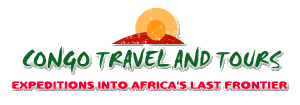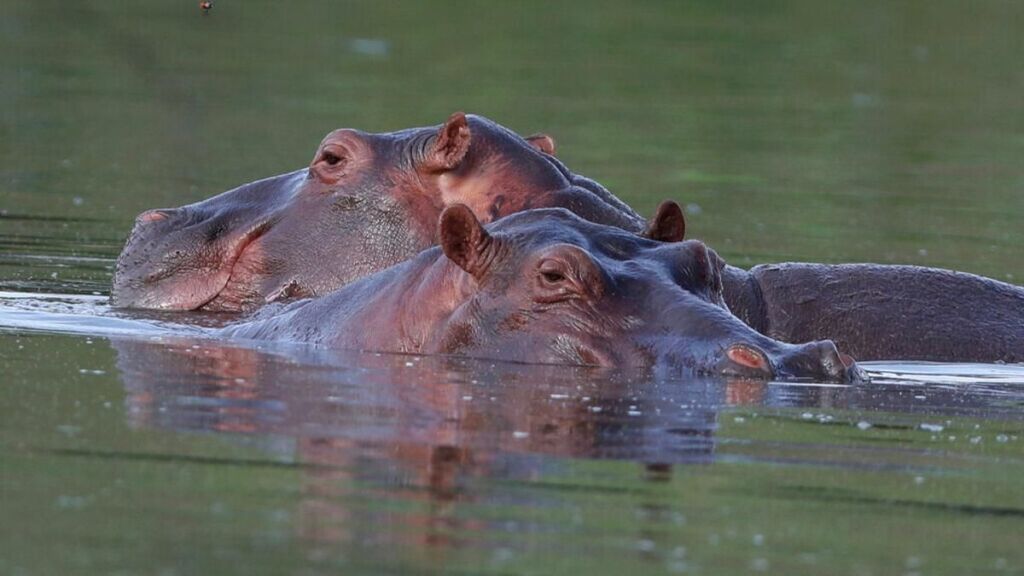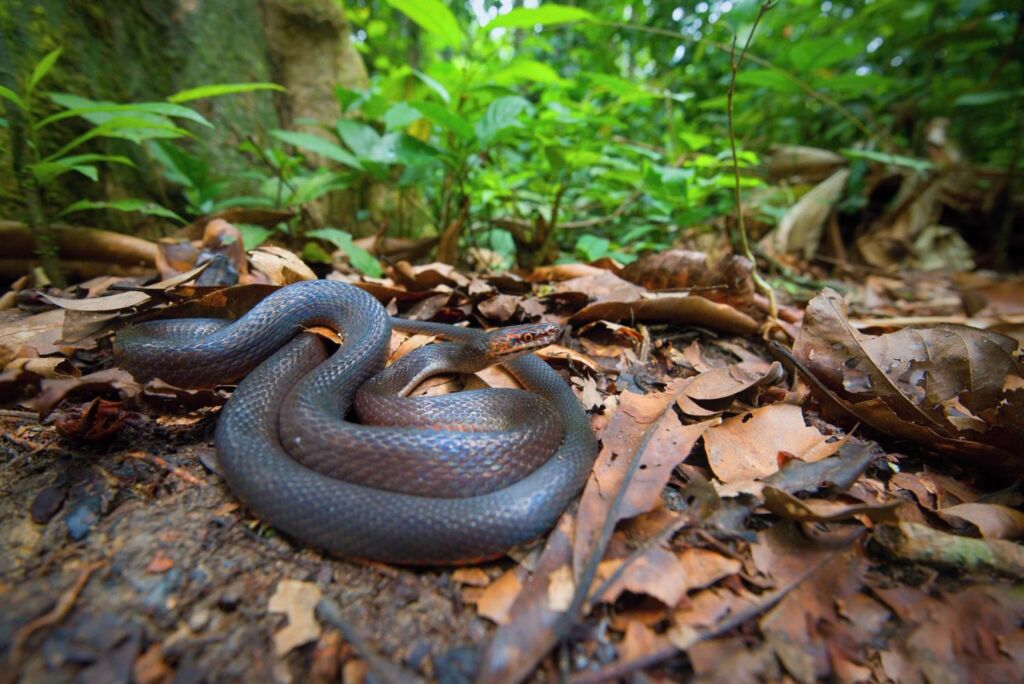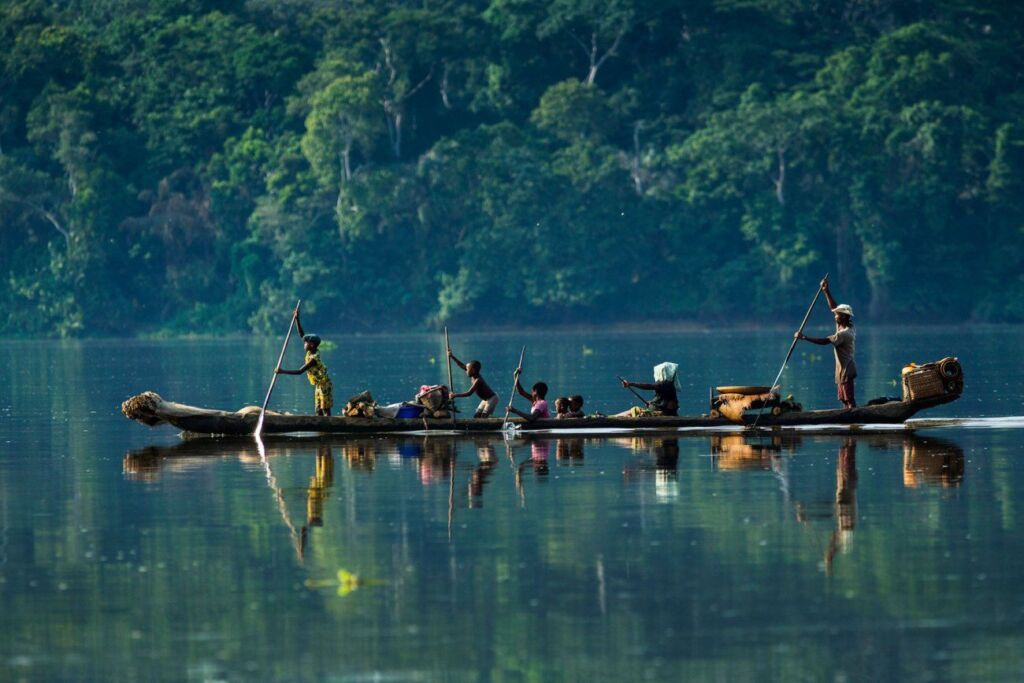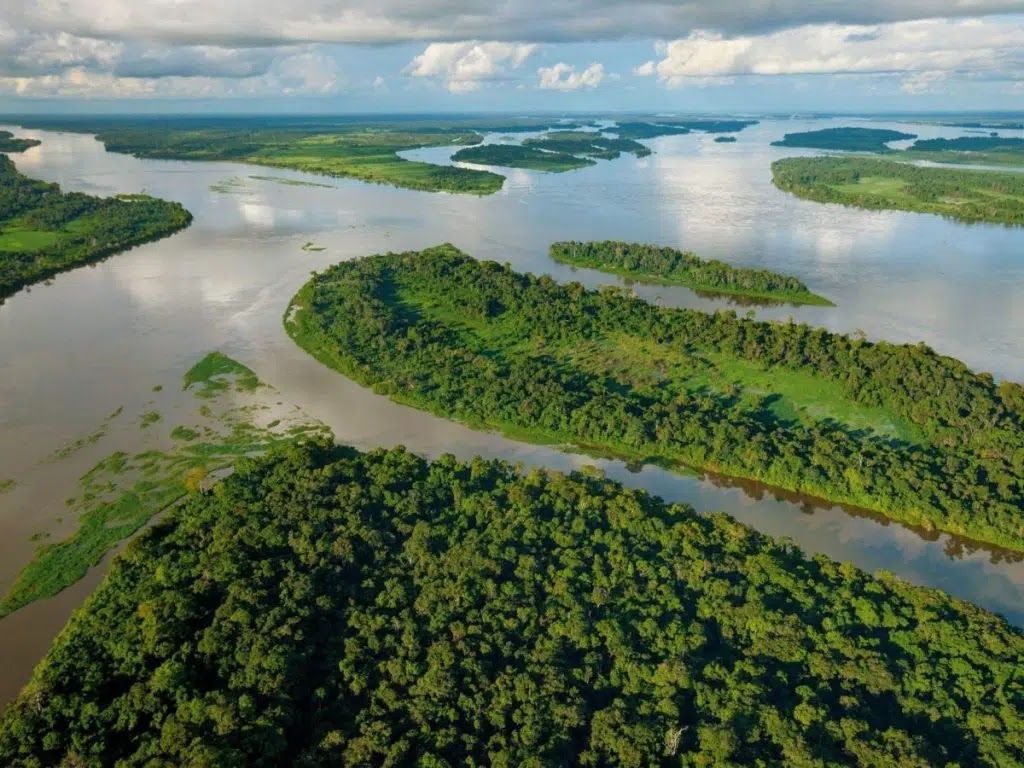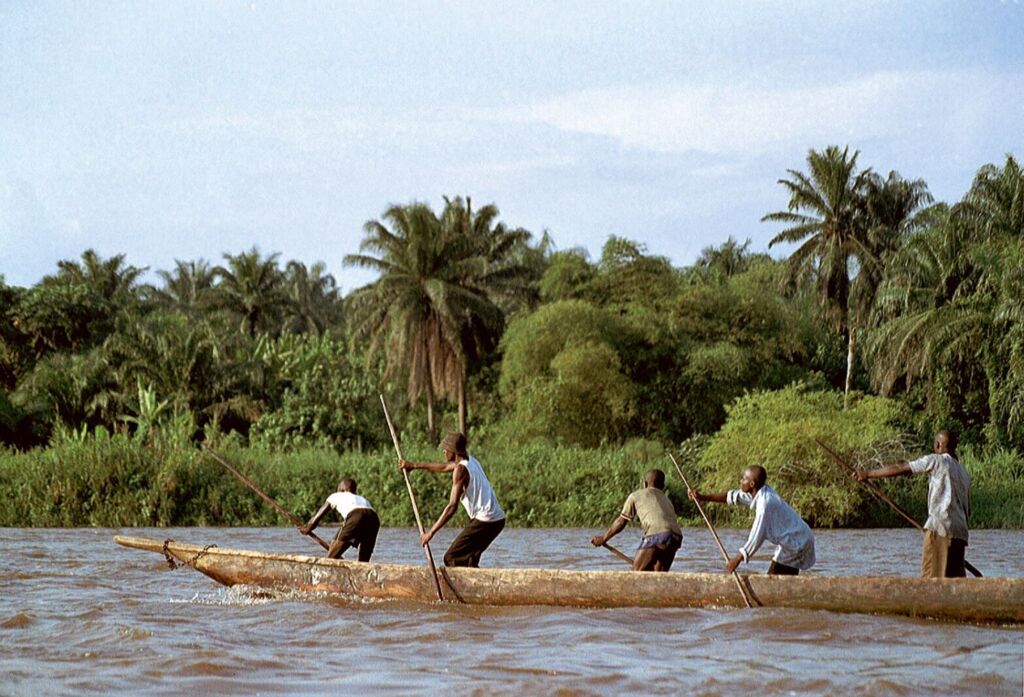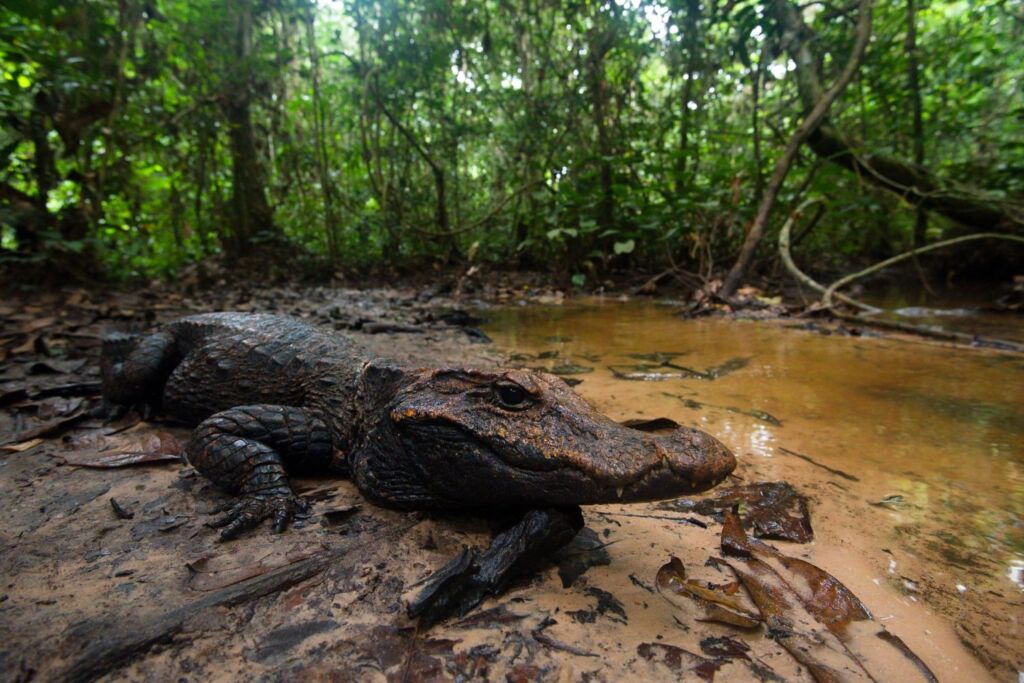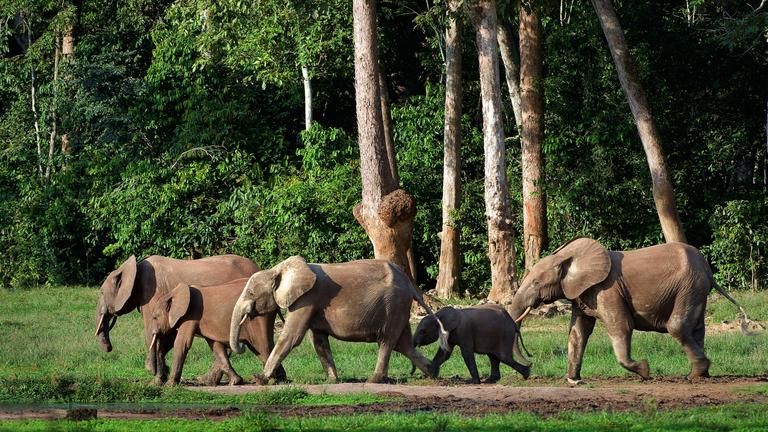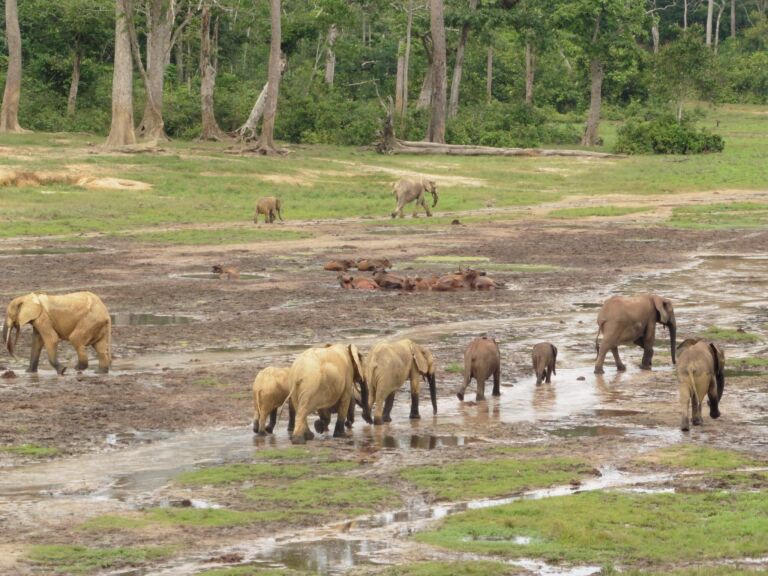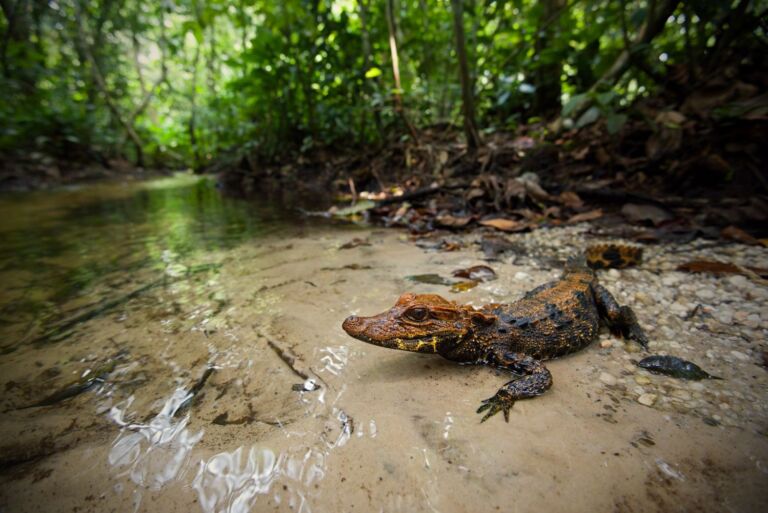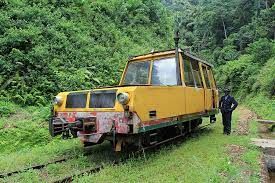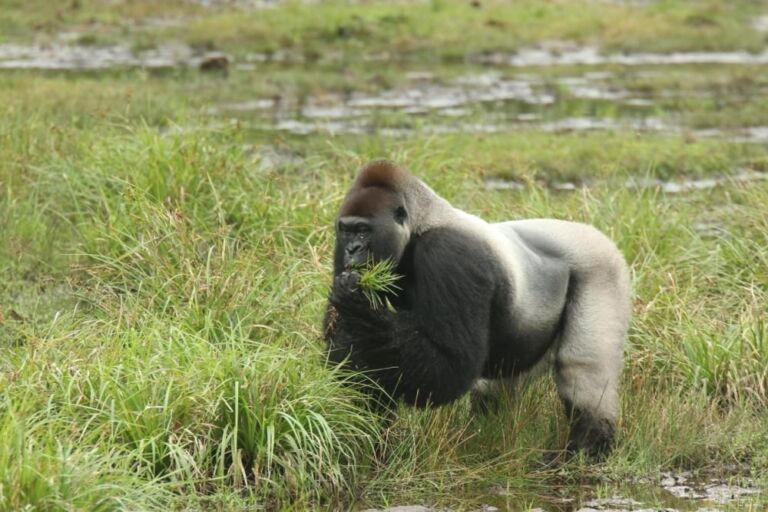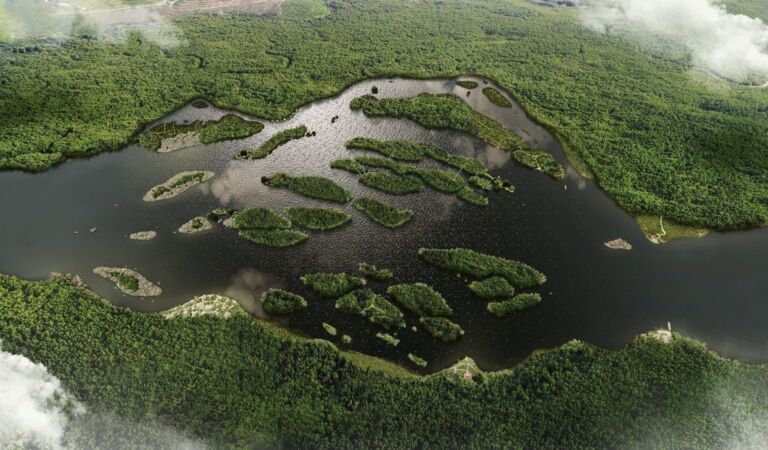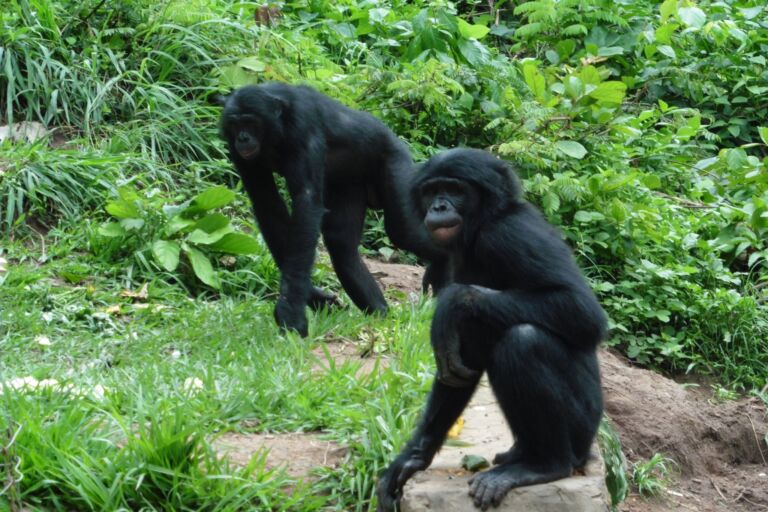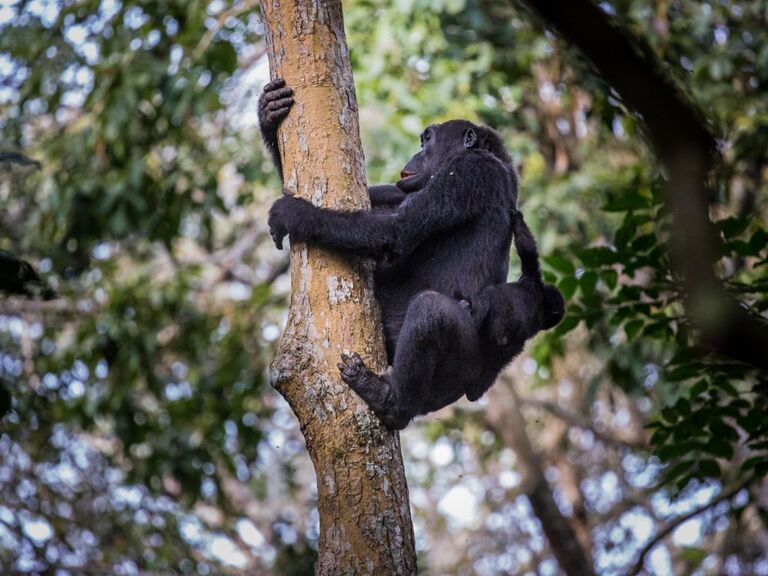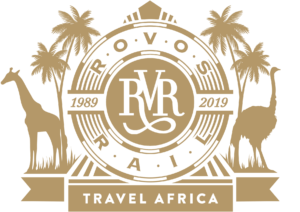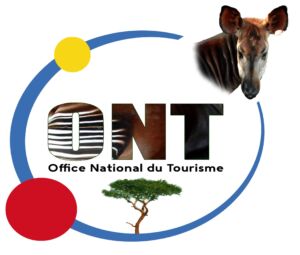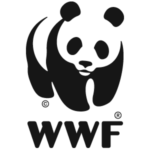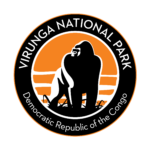Africa, the mother continent where it all began and home to our most precious forests and wildlife. A wild continent covered in deserts, savanna, deep forest and rich in culture, wildlife and much more. Among the travel community, the ones who make it to the continent are still few and most of them go on safari in countries like South-Africa, Kenya and Tanzania, which are all well explored by now. But the truly wild adventure is to be found in the green heart of Africa: Congo.
Congo-Brazzaville is one of the lesser known countries among travelers and with its vast forests and deep rivers it sounds almost impenetrable. The lack of information or travel agencies and a poor infrastructure mean that very few people eventually make it here. This means that this enormous country is still largely undiscovered by tourists and even by locals. The Republic of Congo is home to marvelous national parks, beautiful deep hilly rainforests and numerous rivers and streams which are all connected eventually to the most mythical river in the continent: the Congo.
The Congo Basin is home to endless forests, swamps, marshland which are inhabited by a great variety of animals of which the most iconic are the gorilla, chimpanzees and forest elephants. It is also a region in which millions of people live and some even to the same ancient traditions from centuries ago. The Congo River and many big rivers such as the Ubangi are important trading routes as often there are no roads to transport goods. Many people depend on the river also to eat and sell goods, so there are a lot of settlements and villages close to the river. Besides humans never being more than a day away, the region is still very wild and untouched and inhabited with creatures such as monkeys, hogs, snakes, crocodiles and hippos.
To travel along the Congo-River is a long tiresome process and one would need weeks and also a big budget as Congo is still one of the most expensive travel destinations in Africa and even in the world. This is why we have come up with a smaller tour on the river in which you can get a great introduction to the daily life of the villagers who live near the river; get to see the local wildlife and get a good introduction to the region.
Our tour starts in Brazzaville, from where we will go to the town of Oyo. From there we will embark on the Alima River and slowly make our way to the Congo River to a village in which we have great contacts with the local community. During five days you will stay among the locals, engage in fishing (and preparing if you want) and explore the surrounding marshlands and forests. You will be far away from the civilized world and will never have felt so far away from the world as you know it.
Know that this is not an easy tour and it’s only fit for the most adventurous among us. You will spend a lot of hours in your boat in tropical heat and possible heavy rain showers. You will have to deal with mud, annoying mosquitoes and you will not have the luxury of electricity or running water throughout your expedition. It is vital that you behave in a respectful manner towards the locals and accept the authority of the expedition leader to ensure maximum security. You need to be flexible and open to last minute changes in the programme and come with an open mind. After the expedition it is best to also have up to two buffer days or more in Brazzaville in case there are any holdups on the road.
For those who feel like they are ready for this kind of adventure, we will make sure that you’ll have a great time and you will have the memories of a lifetime. We are the only travel agency who offers these kinds of tours in Congo and all of our guides are local and know the country like the back of their hand. We have excellent contacts with the locals and the local authorities. Besides the handful of clients we have brought here, very few outsiders (even locals) have ever been to this area.
Please, make sure that you know that you understand the kind of place where you’re going to. Even during your stay in Brazzaville you can have power cuts, a period of no running water (except in the Rotana Hotel) and there are factors such as rain showers and landslides which can delay the programme. Make sure to bring enough batteries, power banks, ziplocks to protect your gear, DEET, a portable mosquito net, rubber boots, sunscreen, a hat, sunglasses and basic medication to avoid annoyances.
Below is how the itinerary would look like. We try to stick to the programme as much as possible. Please, allow up to 2 - 3 bufferdays to make sure you don’t miss your flight and make sure you get your PCR-test results if asked. We are not responsible for anything visa or PCR-test related, nor missed flights.
If you would like to fish for the Goliath Tiger Fish we can bring you in contact with local fishermen who know where to catch them. Make sure to bring a good sturdy rod and plenty of back up material as all of these are hard to get in Congo.
Day 1: Arrival in Brazzaville and transfer to your hotel. Meals not included.
Day 2: Early departure for Oyo by coach. Overnight in local hotel. Meals not included.
Day 3 and 4: Descending the Alima River, camping and local meals.
Day 5 and 6: Exploring the area where the Alima flows into the Congo River, camping and local meals.
Day 7: The long journey back to Oyo by boat, overnight in Oyo. Dinner not included.
Day 8: Back to Brazzaville by coach, overnight in Brazzaville. Meals not included
Day 9: City tour in Brazzaville as a buffer day, overnight in Brazzaville. Meals not included.
Day 10: End of tour
Included:
- All transportation as described
- Accommodation for nine days
- Camping with all meals along the river
- Professional local guide
- Fishing and duck hunting if desired
Excluded:
- PCR-tests
- Visa
- Flights
- Tips and gratuities
- All meals outside the river trip (Oyo and Brazzaville)
- Drinks
** Note that sharing a room with someone from the same sex is still not accepted in Congo and will land you in troubles. We do not agree with this, but have no control over this. We are not responsible for any kind of troubles you might encounter if you choose not to follow this advice.
What to bring:
- Plenty of ziplocks and other waterproof bags for your belongings
- Torch and plenty of batteries (maybe one portable torch and one headtorch)
- Pre-charged power banks
- Some baby wipes, bacti-gel and napkins for quick cleaning
- Toiletries
- Quick drying towels
- Rubber boots
- Hiking shoes which dry easily
- Plenty of good socks
- Fishing gear
- Best to use breathable pants and long shirts which dry easily and made for jungle treks
- Sport shirts which dry easily
- A hat with a net against sweat bees (they don’t bite, but they’re annoying)
- DEET (take one with at least 40%)
- Cream against mosquito bites
- Basic medication such as pain killers, basic antibiotics, anti-histamines, painkillers, bandages, disinfectant, loperamide, etc. (if you can also ask coartem to your doctor, which can treat malaria in 4 days)
- Vaccination carnet with proof of vaccination against yellow fever
- Sunscreen, sunglasses, hat
- Good waterproof tent, mat, a sheet
- Waterproof backpack
- Set of gear to eat: knife, fork, spoon, cup
- Extra snacks such as energy bars, snickers, beef jerky etc.
- Maybe a book or an e-reader for when you have some time to kill
- Swimming gear
Vaccinations:
- Covid-19
- Yellow fever
- Ask your doctor about: DTP, typhus (highly recommended), rabies, hepatitis and others.
Malaria:
- Talk to your doctor about the safest and best medication for malaria. Be sure to cover yourself and only wear closed shoes and long pants. Apply DEET and avoid mosquitoes as much as you can. Probably best to have a portable mosquito-net with you for the villages.
Make sure that you have all the necessary documents to enter the country and that you have good insurance in case of any problems as we cannot be held responsible for anything happening throughout the trip. Our staff will do everything in their power to make sure you have a good and safe trip, but be aware of the adventurous nature of this trip and the risks involved.
"Was the cook up to the standard?"
"YES even better"
- Mark. USA, Virunga NP, Goma Tour, Mikeno Lodge
